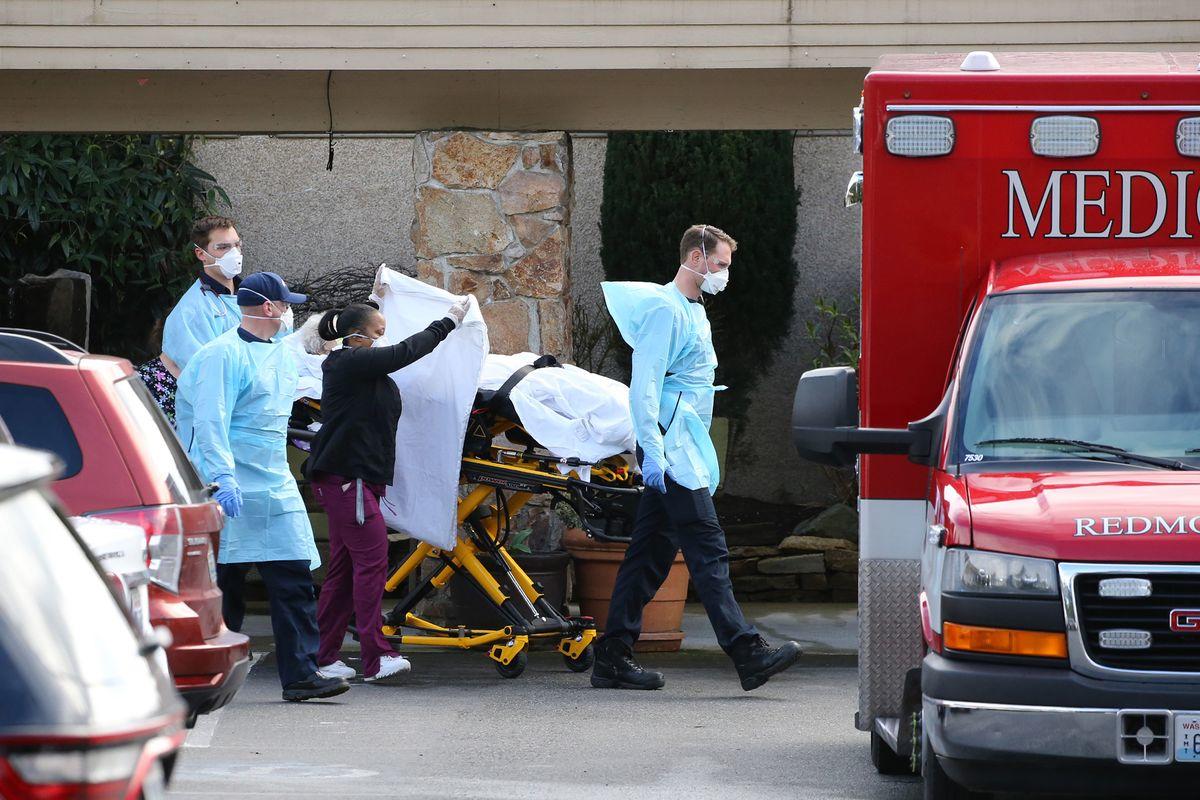Seattle Running Dangerously Low On Protective Gear Amid Largest Outbreak In Country
Seattle is running out of protective gear for first responders and medical facilities as COVID-19 continues to spread in the hardest-hit region in the country, and they are days to week away from running out if they don’t receive new supplies from a national stockpile.
Mayor Jenny Durkan (D) told The Hill that according to current estimates, there are over 1,100 people in the greater Seattle area who are infected with the coronavirus. Of note, there have been 397 confirmed cases in Washington State, of which 29 have died and one person has recovered.
Those who become sick enough to need hospitalization are already stretching health systems as city, county and state officials scramble to build capacity. Many people who become ill call 911, putting a premium on personal protective gear that police and fire fighters must don and doff each time they come into contact with someone who might be symptomatic.
“There’s some critical things that we will need very quickly. We have made it clear on what those are. Testing still remains the number one issue. Capacity has increased, but it has not increased to meet the demand or the need,” Durkan told The Hill. “The national stockpile of personal protective equipment, face masks, face shields, gloves — we will run out if we don’t get replenishments soon.” -The Hill
Despite the dire situation with supplies, Dugan showered praise on state and federal officials, including Vice President Mike Pence following his visit to the Seattle area last week. Early on in the outbreak, she said Pence successfully helped her office resolve a problem early in the outbreak.
That said, testing constraints have proven frustrating.
“The thing that has hamstrung us the most and still we are continuing to catch up because of the lack of testing,” said Durkan. “It’s been very difficult to know how much mitigation and government regulation there has to be because we didn’t know what the scope of the problem was.”
“No one has made any secret that at the beginning of this there were some real stumbles at the CDC. But the line-to-line communication between the city and CDC is working really well,” she added.
Seattle officials began preparing for coronavirus in January following its outbreak in Wuhan, China – holding cabinet-level exercises to plan for the city’s response. Around that time, a man in his 30s from Snohmish County north of Seattle boarded a flight from Wuhan back home – the first known American case of the virus.
Genetic testing from the man and other similar cases revealed that COVID-19 had been circulating undetected for weeks, according to the report.
“It came upon us much more quickly than anyone anticipated,” said Durkan.
Durkan stood alongside Gov. Jay Inslee (D) on Wednesday as Inslee announced restrictions on all gatherings of more than 250 people in King, Pierce and Snohomish counties, the three Washington State counties hit hardest by the virus. Later on Wednesday, Seattle’s public school district said it would close schools for two weeks. The system was still figuring out details for how some of its 52,000 students would be cared for, especially those who depend on it for free and reduced price lunches.
The number of cases in Washington State have doubled every six or seven days for the past several weeks, Durkan said. In a worst-case scenario, the Seattle area could be overrun by 70,000 cases in six weeks.
“When you hear those numbers and look at those models, it makes it pretty easy to make the decision to take some pretty significant steps,” she said. -The Hill
According to the report, the virus has already hit Seattle’s economy hard – which will ‘likely fall disproportionately on low-income workers and small businesses that depend on foot traffic.”
Large corporations and institutions such as Amazon, Microsoft and the University of Washington have all ordered workers to work from home – leaving coffee shops, barber shops, restaurants and other similar businesses dying on the vine.
Durkan’s administration plans to help businesses impacted by the virus by delaying business and operating taxes and increasing funding to a small business stabilization fund.
“Our small businesses, our employees, minimum-wage workers, low wage workers, gig economy workers, those are the most vulnerable part” of the city’s economy, said Durkan. “Small businesses provide about 200,000 jobs in Seattle. The biggest part of our economic sector in terms of jobs. That’s like four Amazons.”
Tyler Durden
Thu, 03/12/2020 – 23:45
via ZeroHedge News https://ift.tt/3aSaz0O Tyler Durden
